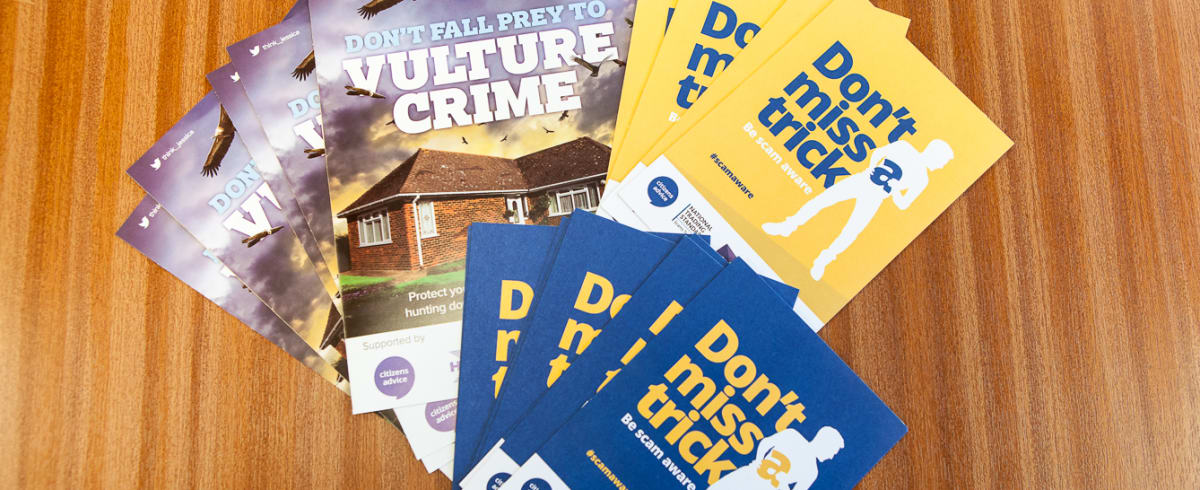Anyone could find themselves targeted by a phone call, email, or whilst out shopping in the high street. Scams transverse all methods of retail and technology.
Every year more than 3 million people in the UK fall victim to scams.
We would like Cheshire West to become a borough of savvy shoppers and informed consumers to help fight the scammers.
Common scams:
Prize Draw scams – You may receive a letter or email telling you that you have won a prize in a lottery or prize draw that you don’t remember entering. The prize suggested could be anything from a holiday, to electronic equipment or even money from a lottery
win. To claim your prize you will be asked for a fee, often suggesting to cover insurance cost for delivery of the prize, taxes or courier charges. The scammer will take your payment and fail to deliver the prize, or send you
something of far less value than the fee you have paid.
Banking scams – You receive a phone call from someone who claims to be from an organisation you know or trust such as your bank, building society or even the police. They advise you that there is a security breach on your account and that you need to take some immediate action to prevent your money being stolen. This normally involves you providing confidential login details or transferring your money from your bank account. However, the person on the other end of the phone is not your bank, but a fraudster
and they use the information you have given to commit fraud against you.
Subscription traps – You see an online advert for a free trial of a product (these are often beauty or health related product like face creams or slimming pills). The advert may be on a reputable site, or appear as a pop-up. You enter your card details to pay for postage and packaging, but end up being debited large amounts of money on a regular basis. You have unwittingly agreed to a continuous payment authority (CPA) – this is an agreement which authorises traders to take money from your account. You might not
get your goods or they might not do what the advert claims.
Technology scams – A scammer calls you, and asks for you by name. They’ll say they are a computer-security expert from Microsoft, or another legitimate tech company. They will say that your PC, laptop or tablet has been infected with a computer virus, and
that they can help you solve the problem. The scammer will attempt to confuse you with jargon and then try and get you to part
with your personal and financial details by selling you anti-virus software, or gaining remote access to your PC and stealing your personal details
Be scam aware:
- If you haven’t entered a prize draw you won’t have won one!
- You should never have to pay anything to claim a prize from a genuine prize draw.
- Your bank or building society will never ask for your pin number, or personal details over the phone, or ask you to transfer money to another account for fraud reasons.
- No legitimate IT security professional company would call you to suggest you have a virus on your PC.
- Be cautious of any cold calls. If it sounds like something you would be interested in, take your time and do some research before agreeing to anything.
Stop and Think– if something appears to be too good to be true it probably is.
Don’t suffer in silence – Speak out about scams.
Tell friends, neighbours and relatives about scams you become aware of, particularly those who might be vulnerable to this sort of crime.
To report a scam of for more information contact Citizens Advice Consumer Service on 03454 040506.
Kindly written and provided by Gaynor Roberts, Lead Officer, Regulatory Services, Cheshire West and Chester Council.

